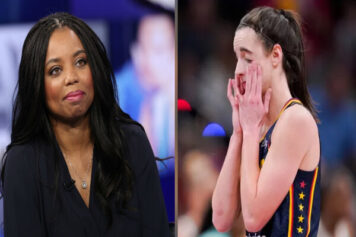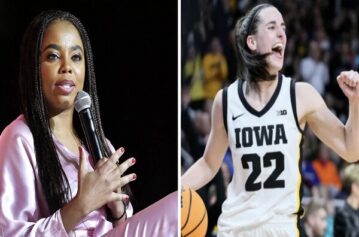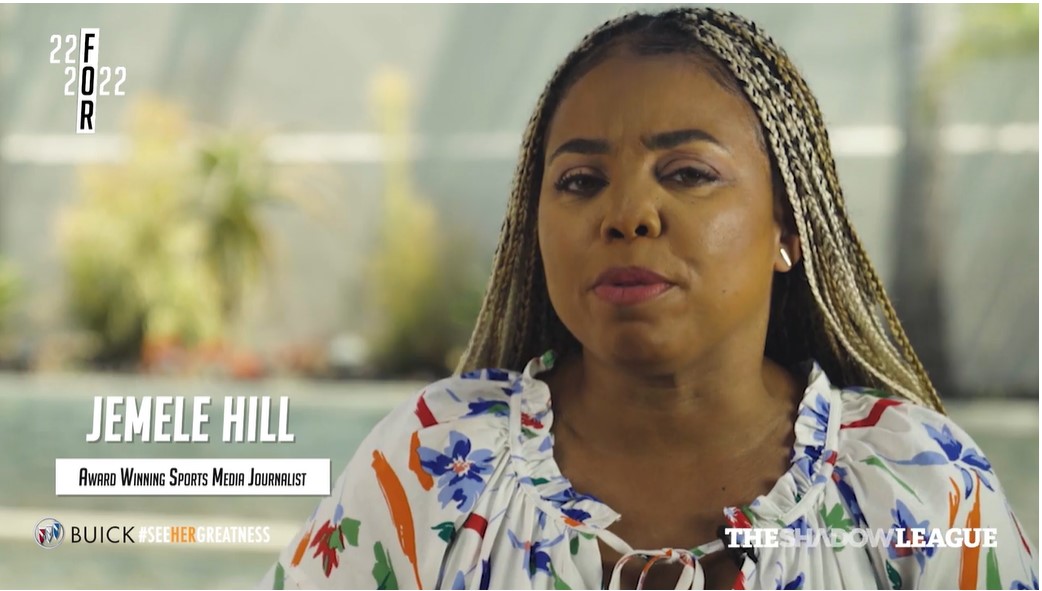2022 marked the 50th anniversary of the passing of Title IX, a federal law that prohibits federally funded education programs and activities from discriminating on the basis of sex. Its enactment tasked public schools with creating equitable opportunities for women to participate in sports, investing in scholarships for men and women proportional to their participation, and treating male and female student athletes equally.
Women in sports have come a long way in the last 50 years on the field and in leadership, coaching and management positions. But they still have a long way to go when it comes to fair and equitable compensation.
Buick and The Shadow League partnered to produce a video series highlighting the top moments for women sports in 2022 entitled “22 For 2022,” to celebrate 50 years of the groundbreaking legal precedent.
The next episode features award winning journalist Jemele Hill and Christine Simmons, former President & COO of the LA Sparks, discussing pivotal moments for women’s sports in 2022, including Dawn Staley’s new contract from the University of South Carolina.
Staley and South Carolina agreed to a women’s record, seven-year, $22.4 million contract before the 2021-22 season. Well deserved for her tremendous accomplishments while at the helm in Columbia.
In her first six seasons as head coach, she improved her program’s record every year, winning the SEC in 2013–2014. In late 2014 her team achieved the program’s first No. 1 ranking, making her only the second individual to both play on and coach a No. 1-ranked team. Staley has gone on to lead South Carolina to six SEC regular-season championships, six SEC Tournament championships, eight Sweet Sixteens, four Final Fours, and two NCAA women’s basketball national championships, the most recent this past spring.
“We’re not getting the same media deals. We’re not getting the same sponsorship deals. We’re not getting the same arena deals,” said Simmons when discussing the pay gap in professional men’s and women’s sports. “Our female athletes are looking for equity.”
The WNBA and WNBPA have a new collective bargaining agreement that recently saw players’ pay get upgraded. They do not receive the multimillion-dollar salaries of their male counterparts, but that isn’t what they’re asking for. Like the men, they want a better share of basketball related income (BRI) and what is constituted as BRI.
The new CBA allowed for a 53 percent increase in total cash compensation, consisting of base salary, additional performance bonuses, prize pools for newly created in-season competitions, and league and team marketing deals.
The league’s top players now earn cash compensation in excess of $500,000, three times more than the previous deal. Other top players will have an opportunity to earn between $200,000 and $300,000. And for the first time in WNBA history, the average cash compensation for players exceeds six figures, averaging nearly $130,000.
“I think it’s super important to remember that Title IX – the legislation itself – was not originally about sports,” said Victoria Jackson, sports historian and clinical assistant professor of history in the School of Historical, Philosophical, and Religious Studies at Arizona State University. “Fundamentally it is legislation focused on civil rights – providing equal access to educational opportunities – which also include equal opportunity to play school sports.”
As a society we still have miles to go before we are completely inclusive. When we think of Title IX, let’s remember the ideals the legislation aspires to when it comes to all people.



